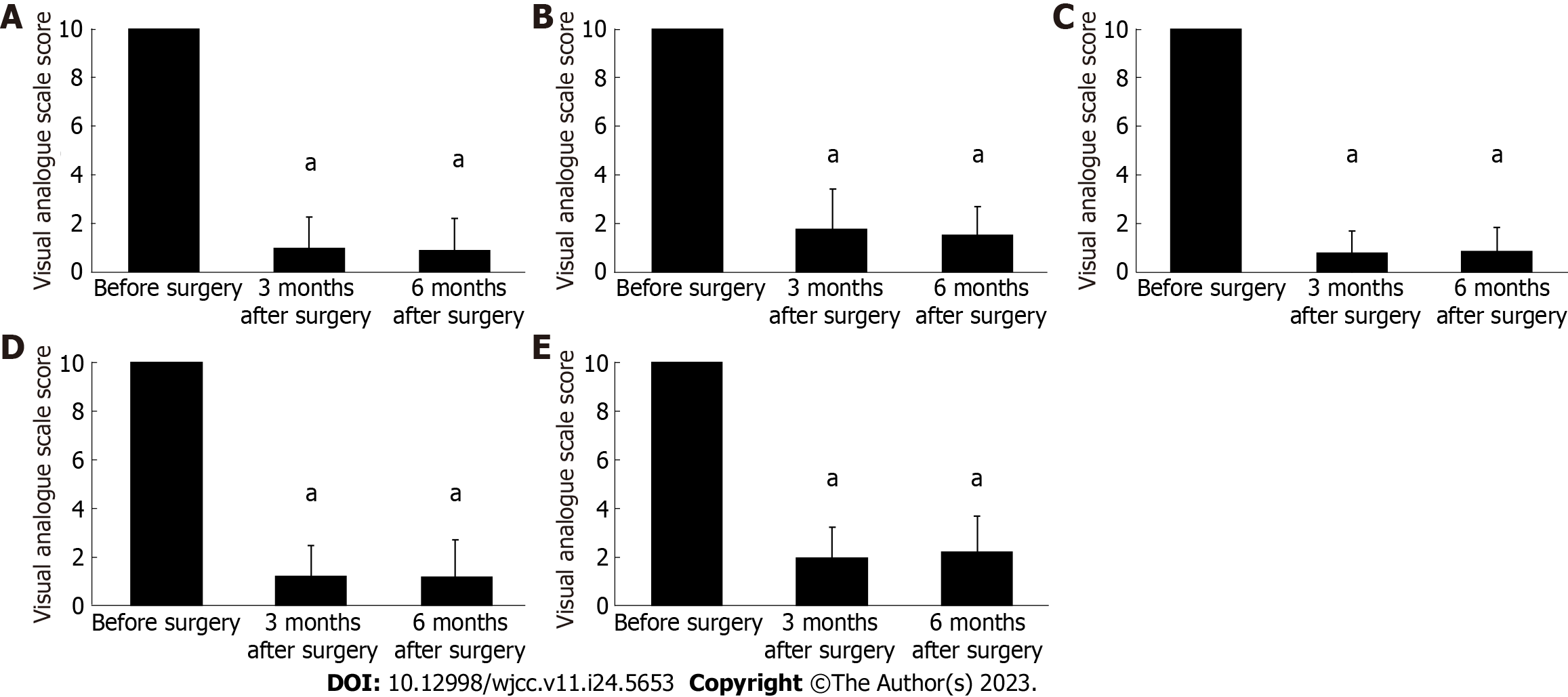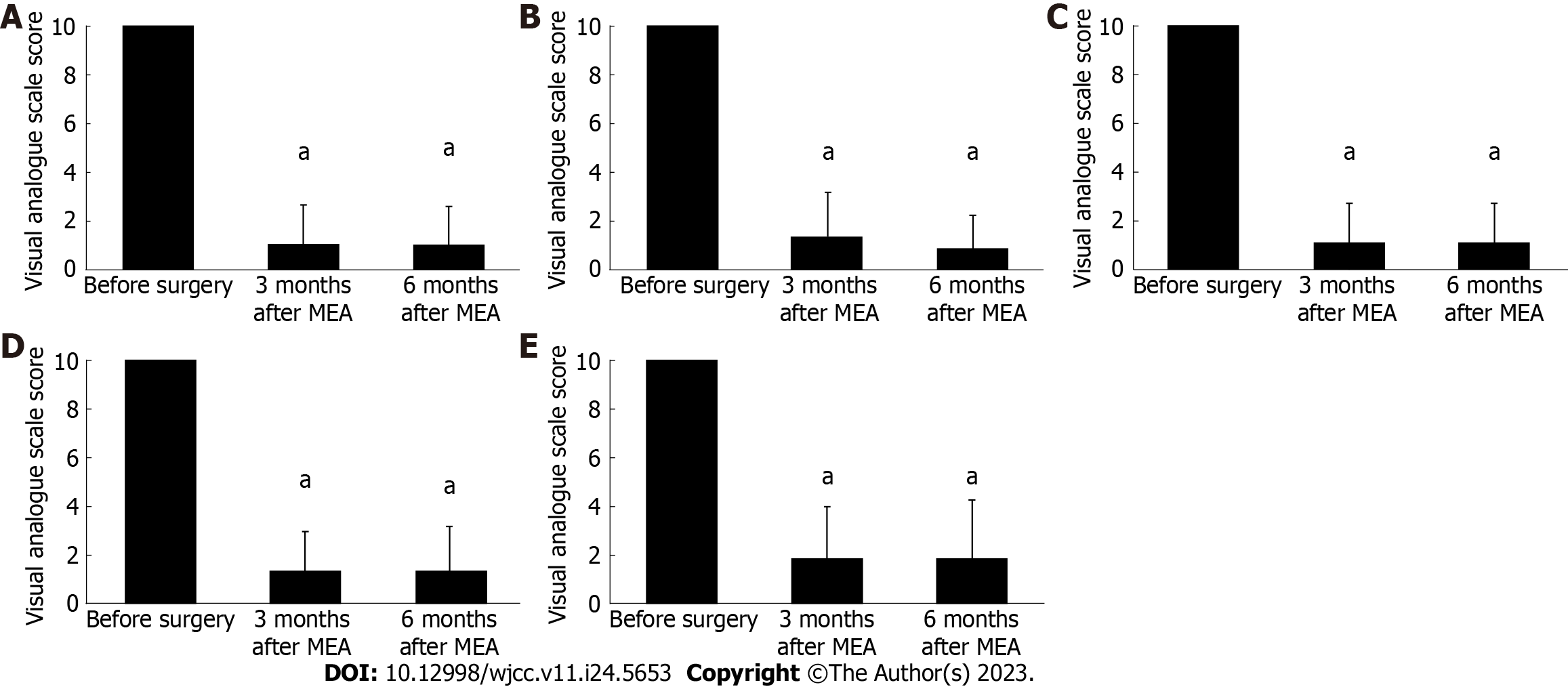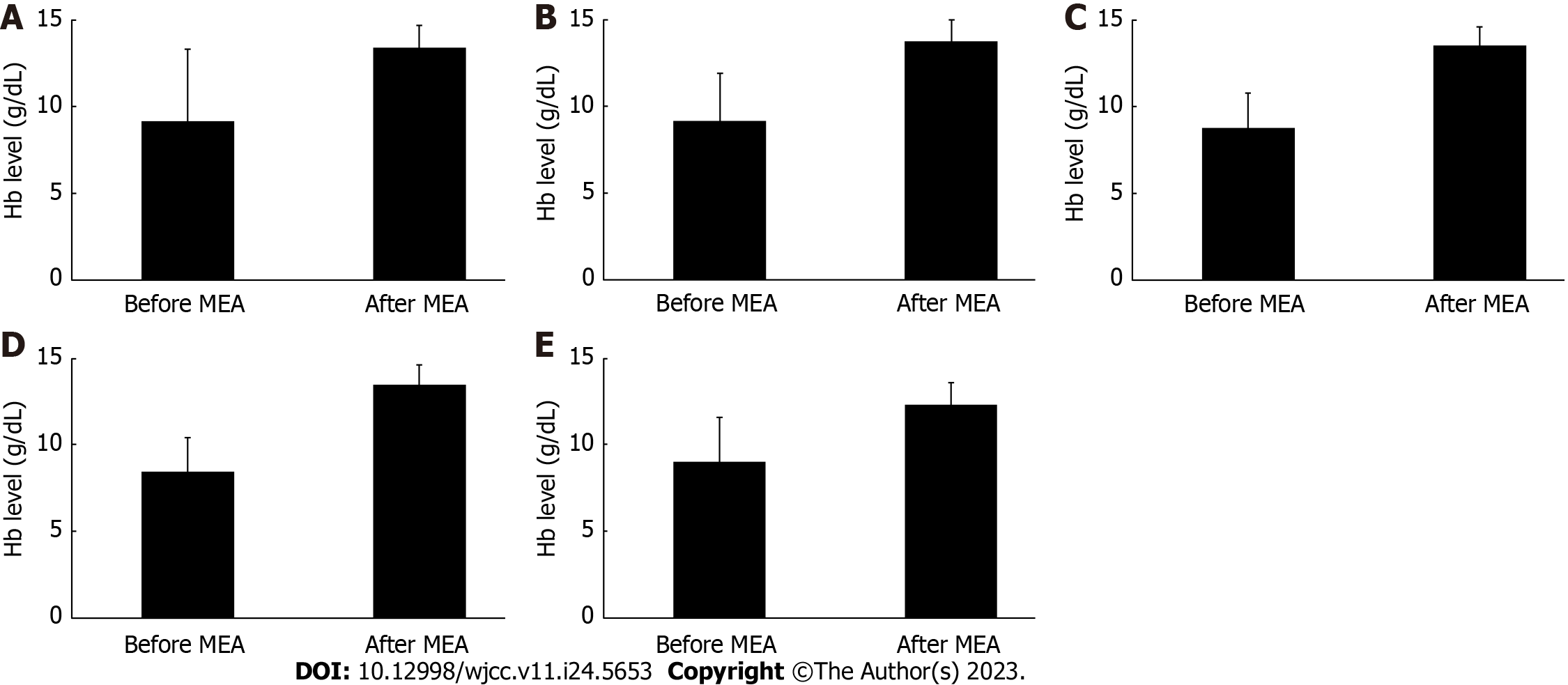©The Author(s) 2023.
World J Clin Cases. Aug 26, 2023; 11(24): 5653-5659
Published online Aug 26, 2023. doi: 10.12998/wjcc.v11.i24.5653
Published online Aug 26, 2023. doi: 10.12998/wjcc.v11.i24.5653
Figure 1 Changes in visual analog scale score for menorrhagia following microwave endometrial ablation.
A: All cases; B: Those with functional menorrhagia; C: Those with endometrial polyps; D: Those with uterine fibroids; E: Those with adenomyosis. Values are expressed as the mean, with error bars representing the standard deviation. aSignificantly diferent between before surgery and each group, P < 0.001.
Figure 2 Changes in visual analog scale score for dysmenorrhea following microwave endometrial ablation.
A: All cases; B: Those with functional menorrhagia; C: Those with endometrial polyps; D: Those with uterine fibroids; E: Those with adenomyosis. Values are expressed as the mean, with error bars representing the standard deviation. aSignificantly different between before surgery and each group, P < 0.001.
Figure 3 Comparison of blood hemoglobin levels before and after microwave endometrial ablation.
A: All cases; B: Those with functional menorrhagia; C: Those with endometrial polyps; D: Those with uterine fibroids; E: Those with adenomyosis. Values are expressed as the meas, with error bars representing the standard deviation. MEA: Microwave endometrial ablation.
- Citation: Kakinuma T, Kaneko A, Kakinuma K, Matsuda Y, Yanagida K, Takeshima N, Ohwada M. Effectiveness of treating menorrhagia using microwave endometrial ablation at a frequency of 2.45 GHz. World J Clin Cases 2023; 11(24): 5653-5659
- URL: https://www.wjgnet.com/2307-8960/full/v11/i24/5653.htm
- DOI: https://dx.doi.org/10.12998/wjcc.v11.i24.5653















